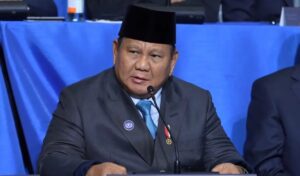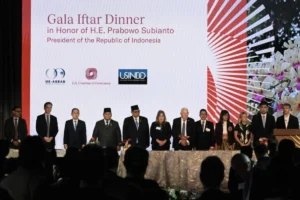Indonesia Integrates 2030 FOLU Net Sink into National Priority Programs

Jakarta, The Gulf Observer: Forestry Minister Raja Juli Antoni announced that the Indonesian government has integrated the 2030 FOLU Net Sink target into its national priority programs, with a strong focus on preventing deforestation and advancing sustainable forest management.
“In the fourth Result-Based Contribution (RBC) investment plan, which we just launched, we have integrated the 2030 FOLU Net Sink into national priority programs,” Antoni stated during the launch of the RBC-4 Investment Plan and the third phase of the Community Fund for the Environment in Jakarta on Thursday.
The 2030 FOLU Net Sink refers to a condition in which the forestry and other land use (FOLU) sector absorbs more greenhouse gas emissions than it produces by 2030.
The Minister explained that the national priority programs encompass reducing emissions by preventing deforestation and forest degradation through sustainable management, increasing landscape-based rehabilitation to enhance carbon sequestration, and strengthening biodiversity conservation.
Additional measures include peat ecosystem management through revegetation and improved water regulation, implemented with community participation and reinforced by stronger legal frameworks.
Antoni emphasized that the RBC-4 plan focuses not only on open and transparent sustainable forest management but also on community involvement. “This includes protecting forests by collaborating with local communities and indigenous peoples through Social Forestry, which will also improve community welfare,” he said.
Indonesia has received Result-Based Contribution funding from the Norwegian government for climate and forestry initiatives, totaling US$216 million—comprising US$56 million in the first phase, US$100 million in the second and third phases, and US$60 million in the fourth phase.
As part of these initiatives, Indonesia has planted 4.6 million seedlings across 11,215 hectares, involving 35,180 people in 383 groups. These efforts have absorbed an estimated 21,000 tons of CO2 equivalent and resolved 40 land tenure conflicts.


